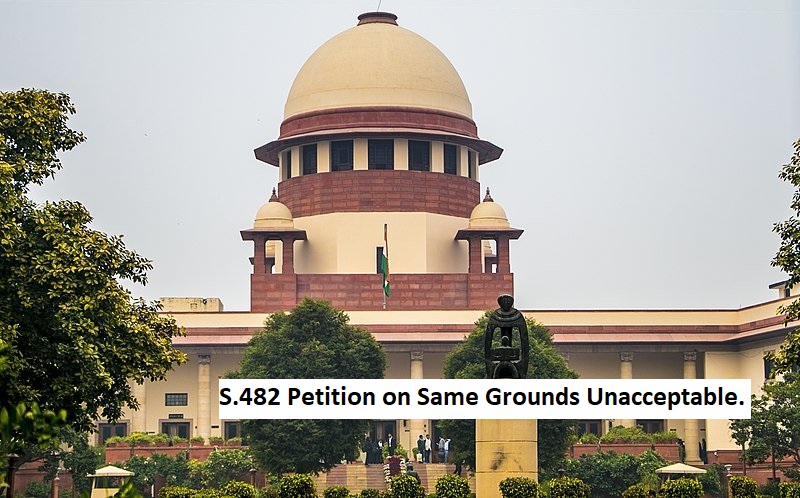


On October 30, the Supreme Court ruled that a second Section 482 CrPC petition, raising grounds present during the first petition, is not permissible
Justices C.T. Ravikumar and Sanjay Kumar's bench noted that while a second S. 482 petition is not entirely prohibited, it becomes unjustifiable if the relief grounds were accessible during the initial petition.
The judgment, authored by Justice Sanjay Kumar, asserts that although there's no universal prohibition on second Section 482 Cr.P.C. petitions, it's unacceptable for an aggrieved party to raise consecutive pleas, invoking this provision, when those pleas were available in the initial instance. Allowing successive petitions under Section 482 Cr.P.C. would potentially let a clever accused hinder proceedings at their convenience, irrespective of when the grounds for it arose, which is an abuse of the legal process that cannot be allowed.
The Supreme Court was deliberating an appeal challenging the Allahabad High Court's decision to reject the appellant's second Section 482 application.
In this case, a complaint was filed by the Joint Director of the State Urban Development Authority in Uttar Pradesh, accusing individuals of irregularities in building toilets under the Integrated Low-Cost Sanitation Scheme and misappropriation of public funds. The Appellant was charged under the Indian Penal Code, 1860, and under Sections 7 and 13 of the Prevention of Corruption Act, 1988.
The Appellant initially submitted a petition under Section 482 Cr.P.C., contesting the Uttar Pradesh government's sanction to prosecute them for the alleged offenses. The High Court, in response, dismissed this application but allowed the Appellant the option to contest the sanction order in the Trial Court.
Later, the Appellant filed a second application under Section 482 Cr.P.C., seeking to nullify the charge sheet and the cognizance order. The High Court dismissed this application, stating that it was not permissible for the petitioner to continually contest the proceedings step by step.
The Supreme Court concluded that in this particular case, the charge sheet and the court's cognizance of it occurred well before the filing of the first Section 482 Cr.P.C. petition, which only challenged the sanction order. Consequently, the petitioner was not allowed to later use the High Court's inherent jurisdiction to contest the charge sheet and cognizance order. The Supreme Court upheld the Allahabad High Court's decision, finding it indisputable and not necessitating any intervention.
TAGS: Supreme Court Charge sheet Cognizance Section 482 Cr.P.C. Sanction order Allahabad High Court Inherent jurisdiction